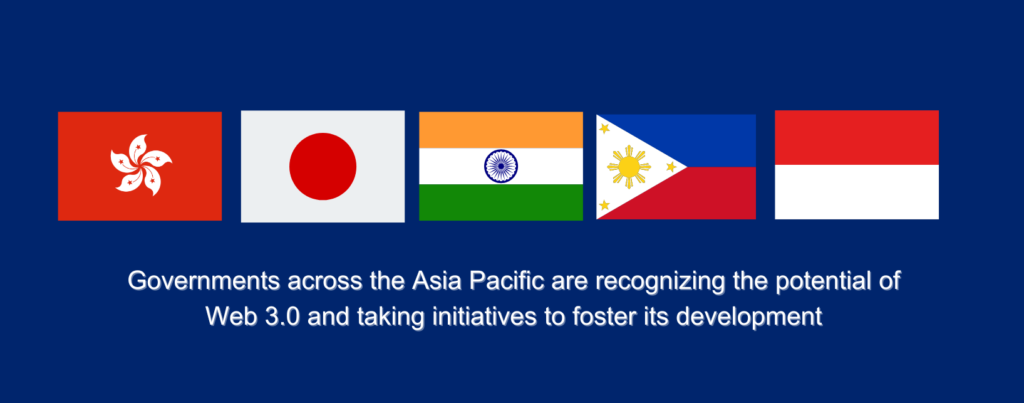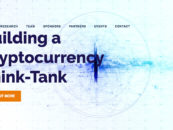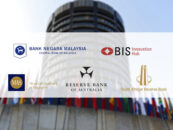In the ever-evolving digital technology landscape, the Asia-Pacific (APAC) region has emerged as a hotbed for Web 3.0, the next wave of transformative advancement.
Over the last few years, this dynamic region, renowned for its economic diversity and tech-savvy population, has been pioneering advances in this revolutionary Internet paradigm, fostering an ecosystem of developers, entrepreneurs, and companies dedicated to shaping the future of the web.
According to Emergen Research, Web 3.0 is projected to reach a global market value of US$81.5 billion (SG$110.33 billion) by 2030. This exponential growth is fueled mainly by industries such as banking, financial services, and insurance (BSFI), e-commerce and retail, healthcare, and pharmaceuticals, which are actively embracing and integrating Web 3.0 technologies
Digital transformation and tech adoption in Southeast Asia
When it comes to digital transformation and technology adoption, Southeast Asia (SEA) stands at the forefront within the APAC region.
According to the annual SYNC Southeast Asia report by Meta and Bain & Company, SEA surpasses other APAC markets, such as China and Japan, regarding fintech and Web 3.0 adoption.
The sub-region exhibits a higher penetration rate of digital wallets, cryptocurrencies, and non-fungible tokens (NFTs). Nearly 70 percent of individuals in SEA have utilized at least one technology related to the metaverse in the past year.
Applications in Southeast Asia
Various decentralized autonomous organizations (DAOs) have emerged within SEA to foster adoption and community participation. One such example is YGG SEA, a subDAO of Yield Guild Games (YGG), a global gaming guild that invests in NFTs used in virtual worlds and blockchain-based games. YGG SEA connects gamers and potential projects in the Web 3.0 gaming space.
Moreover, initiatives like WOW Pixies, a Singapore-based entrepreneur-led DAO, focus on promoting women-led projects. WOW Pixies manages an NFT vault and hosts community events to foster knowledge sharing and upskilling for women in the Web 3.0 ecosystem. Such initiatives empower women to participate and contribute to Web 3.0 actively.
Driving innovation in NFTs and blockchain gaming
The Asia-Pacific region is experiencing remarkable growth in NFTs and blockchain gaming, contributing significantly to adopting the digital assets revolution. Platforms like FormosArt, a Singapore-based NFT marketplace specializing in Asian contemporary art, play a crucial role in offering artists a secure platform to safeguard their creations while allowing collectors to acquire verified artworks seamlessly.
Another prominent player in this field is Mintable, also based in Singapore, which provides a marketplace for users to mint, buy, sell, and trade NFTs on the Ethereum and Zilliqa blockchains. Mintable offers various features, including gasless minting, batch minting, royalties’ management, and analytics, enhancing the overall NFT experience.
In Bangkok, GuildFi is a decentralised web ecosystem that focuses on games and NFTs, connecting gamers with potential projects in the metaverse. By providing capital, player liquidity, and operational support, GuildFi contributes to the growth of the Web 3.0 gaming industry in the region, fostering a thriving environment for innovation and collaboration.
Regulatory challenges and the road ahead
While APAC is witnessing significant progress in Web 3.0 adoption, several challenges need to be addressed for mass adoption and impact. Regulatory uncertainty and scrutiny remain key obstacles as regulators attempt to balance the risks and benefits of Web 3.0 technologies. Compliance with existing regulations and anticipation of new ones is crucial for stakeholders.
Usability and accessibility pose additional challenges. Web 3.0 applications often require technical knowledge and suffer from poor user experience. Improving usability and accessibility will be pivotal in attracting a broader user base.
Interoperability and scalability issues also need to be overcome. Web 3.0 applications often operate on different platforms and face scalability limitations. Developing standards and solutions for cross-chain and cross-platform communication is essential to seamlessly integrate Web 3.0 applications and users.
Government initiatives in the Asia Pacific region
Despite facing various challenges, the Asia-Pacific region is poised to sustain its transformation into a thriving hub for Web 3.0. Governments across the Asia Pacific are recognizing the potential of the decentralised web ecosystem and taking initiatives to foster its development.
Hong Kong, for instance, has launched initiatives to attract digital asset businesses and established a fund and task force to support Web 3.0 development. The country has reserved HK$50 million (SG$ 8.64 million) for Web 3.0 development by organizing major international seminars and arranging workshops for youngsters.
Similarly, Japan has established a Web 3.0 policy office to develop a conducive business environment and promote innovation and collaboration.
With its tech-savvy population and vibrant startup ecosystem, India has also witnessed a surge in Web 3.0 adoption and entrepreneurship. It boasts the third-largest pool of Web 3.0 talent worldwide, with an impressive representation of over 11 percent. Furthermore, the nation is home to more than 450 Web 3.0 startups, which have collectively attracted substantial investments exceeding US$1.3 billion since 2020.
Indonesia is also experiencing a notable surge in similar adoption and entrepreneurship in this field, evident through the growing number of crypto investors and the enthusiastic embrace of NFTs and the metaverse. This trend is further amplified by the archipelago’s favorable regulatory framework for digital assets, as evidenced by the issuance of licenses to digital asset service providers under the Commodity Futures Trading Regulatory Agency (Bappebti).
Similarly, the Philippines has a thriving community and ecosystem, evident from the increasing number of projects, events, and initiatives taking place in the country. The regulatory environment is supportive, with licenses issued by the Bangko Sentral ng Pilipinas (BSP) to digital asset service providers.
The Philippines has launched initiatives such as Web 3.0 Philippines to foster decentralized web development. This non-profit organization sparks and nurtures the local blockchain industry through community engagement and education. Additionally, the Philippine Web 3.0 Festival serves as a prominent event that showcases the future of the decentralised ecosystem, bringing together an array of games, guilds, NFT projects, and crypto VCs in front of a highly engaged global audience.
Looking ahead
The Asia-Pacific region has experienced remarkable growth and transformation, driven by the rapid integration of digital technologies, extensive adoption of fintech solutions, and the vibrant presence of decentralized autonomous organizations (DAOs), non-fungible token (NFT) marketplaces, and gaming platforms.
The rise of Web 3.0 is empowering individuals and communities, marking the advent of a decentralized era of value exchange. To succeed in this evolving landscape, brands need to embrace this paradigm shift and prioritize community building, wallet strategies, and immersive experiences.
Backed by progressive government initiatives and a flourishing ecosystem, the APAC region is poised to assume a prominent position in shaping the trajectory of Web 3.0.











